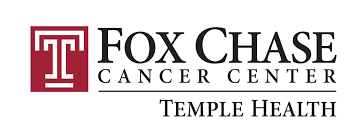
Finding Connection After a Young Adult Cancer Diagnosis

Young adults with newly diagnosed cancer may feel overwhelmed, but open communication with doctors and support groups can help them feel less alone.
Young adults facing a new cancer diagnosis often feel overwhelmed, and Disha Sawhney, manager of service line operations at Fox Chase Cancer Center, encouraged them to speak openly with their physician about concerns.
She said patient services and online resources can help, along with support groups that create connection. Specifically, she discusses a virtual group where a young woman from Ohio joined after seeing a social media post and felt supported.
Sawhney reminded patients they are not alone and have a team behind them. For caregivers, she noted caregiving is exhausting and burnout is real, urging them to seek help when needed.
Transcript
What advice do you have for newly diagnosed young adult patients?
It's obviously overwhelming because they are at a different age and space in their life. So I think the first sort of advice would be to speak to your physician and talk to them about your concerns. And also, there's a plethora of resources that we offer on our website, and you know, our patient services. Talk to people about it. There's a lot of information available online, like resources like NCCN. They have a lot of guidelines that will support patients. So definitely do a lot of research out of reading and find support groups.
The one thing that was so heartwarming for us is when, in our last peer support group, we had a patient join from Ohio, and she saw our post through Facebook, and she's like, we don't have such a thing in Ohio. She was actually able to come join us digitally and virtually, because we had our peer support group was virtual, and she was able to share and feel so connected, and she actually sent us a very nice message to our social work group. I think things like that make a big difference in their life and journey. My advice is, don't feel you're alone. You know, we have a whole team supporting you in this and what advice you have for the caregivers and loved ones of young adult patients. I think it's a lot. I've been a caregiver. I think it's very emotionally exhausting, and that is burnout. Caregiver burnout is real, and please don't discount that, like get the help you need.
Transcript has been edited for clarity and conciseness.
For more news on cancer updates, research and education,




